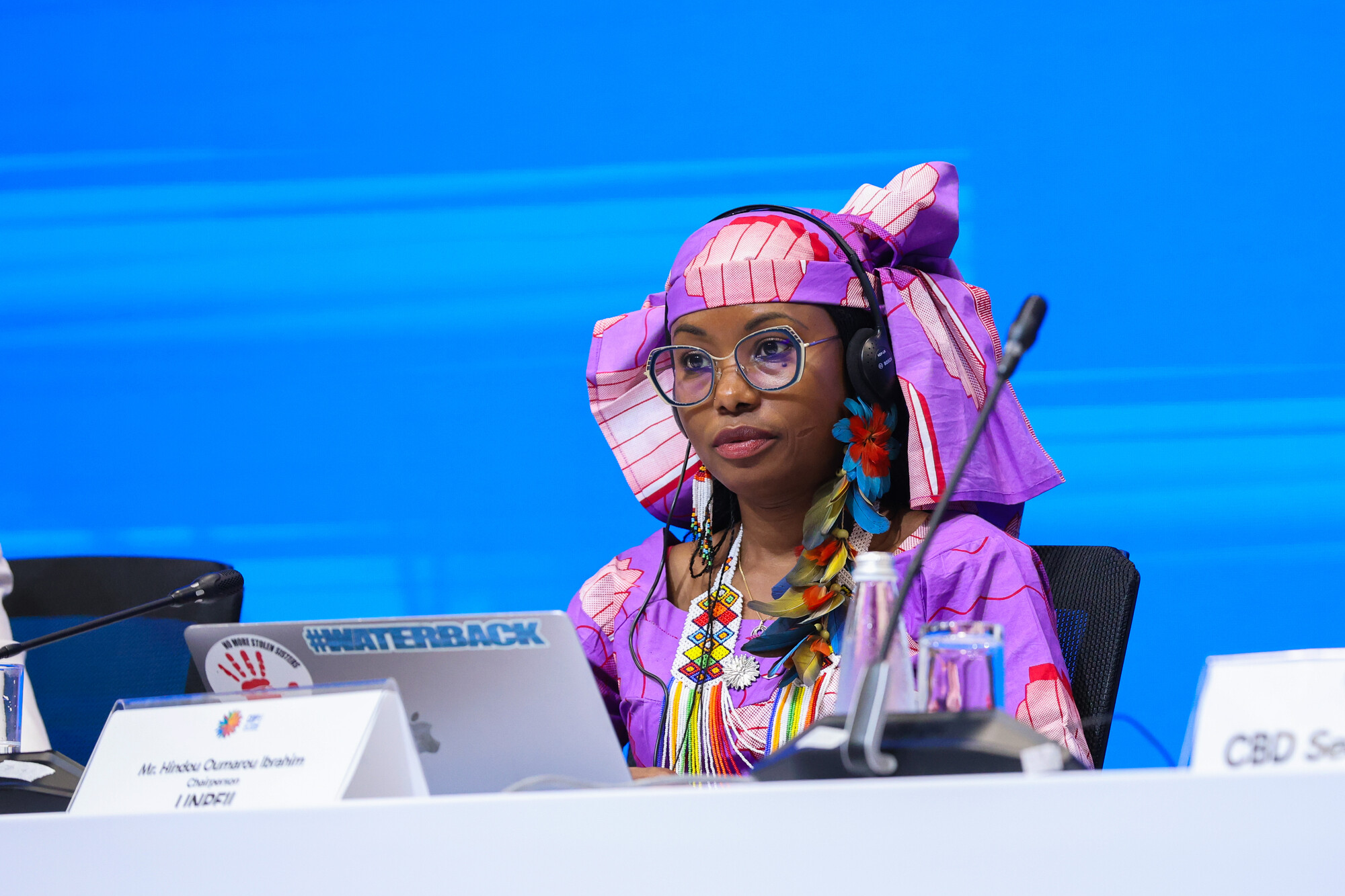How Indigenous Negotiators Fared in 2024
11 March 2025
Last year was heavy—particularly for me and for Indigenous Peoples who moved to action at all three Rio Convention Conferences of the Parties (COPs). I recall the late nights running between Parties, speaking with ministers, and navigating dynamics with COP Presidencies and the Secretariats to move the decisions forward.
It was very complicated, but at the end of the day, we got some good outcomes. We achieved the permanent subsidiary body on Article 8(j) in the Convention on Biological Diversity. We helped creating the first Indigenous Peoples’ Caucus and the Sacred Land Declaration at United Nations Convention to Combat Desertification COP 16. On climate, we worked to see a new workplan for the Local Communities and Indigenous Peoples Platform adopted, and to have the Indigenous Peoples’ right to the free, prior and informed consent recognized as a condition for any project in the carbon market. I’m so grateful we reached these outcomes.
(This article by Hindou Oumarou Ibrahim, Chair, UN Permanent Forum on Indigenous Issues, first appeared as the foreword in The State of Global Environmental Governance 2024.)
But how we are carrying on cannot continue. I left home in September for the UN General Assembly (UNGA). I travelled in October, November, and December for negotiations. Is that healthy for me? No. Is that sustainable for the planet? No. Is that helping to get better outcomes? I’m not sure.
I met many people like me who were in the three COPs and at the UNGA. For most countries, the same minister of environment is in charge of climate, biodiversity, and land. So why must we travel to three separate conferences? Not to mention the fact that we need to focus on implementing the decisions.

I think the governance of the three Conventions needs to be revised, in a way that allows COP meetings to be organized differently, in a more efficient and holistic way. I’m standing with Indigenous Peoples, advocating that ecosystems are interconnected. Our crises are linked, and our actions must be linked, and yet we talk in these separate forums.
Humanity is under threat. Maybe developing countries are the most impacted now; maybe Indigenous Peoples are the most impacted now—but everyone is at risk. We cannot do our work separately. We are competing for the same funding from the same countries and from the same businesses but in separate negotiation areas. They give us peanuts here and there—and we celebrate these peanuts when we need billions and trillions. Perhaps if we coordinate all the actions of the Rio Conventions, we can have one push for the money that we want and the outcomes we need.
Progress for Indigenous Peoples in these talks is mixed. In addition to Parties, many non-party stakeholders now talk about Indigenous Peoples as the solution. They understand we have important contributions to bring to the table, and they want our voices there. On the other hand, when you look at Indigenous Peoples’ access to finance, we get less than 1% of the climate funding. There is some hypocrisy going around.
For 2025, I have two themes on top of my agenda. First: ensure we get direct access finance for Indigenous Peoples. We need money we can build our lives with—not siloed money for forests, water, and so on. The needs of Indigenous communities are interconnected, so we need flexible money that can adapt to our lives.
Second: critical minerals in the just transition. Often these critical minerals are in Indigenous Peoples’ lands, in developing countries with high biodiversity but low legal oversight. I want the world to think about making a global treaty to do no harm to the land. We are moving from oil to critical minerals without knowing how to restore the land, without limits to harm that Indigenous Peoples know.
Most people think it is just anecdotal or folkloric when we talk about Indigenous Peoples’ knowledge. When I say my grandmother can observe the clouds to predict the weather, they say: “Oh wow, this is amaaa-zing.” But it is true. I want people to better understand this about Indigenous Peoples’ knowledge. It is the real life we are living.
Usually when I’m on a panel as a black African Indigenous woman, people want me to talk about negative things. “How are you impacted by climate change? How are you impacted by whatever?” OK, but I want to talk about the actions I will take—the solutions we have as Indigenous Peoples and the support we need to implement them. Time runs out, and the panel is done—and I do not get the chance to talk about the positive.
We are in very difficult times now. Many countries have different views, especially about climate and biodiversity. My advice? Stay positive. Stay focused. It is important to pull the light out of the geopolitical darkness. Politicians come and go, but our life is continuous, so let’s join all our efforts together.
Indigenous Peoples have been very good at showing no matter what administration, no matter what we face—even genocide—the solutions are there. Just listen to us.
— Hindou Oumarou Ibrahim, Chair, UN Permanent Forum on Indigenous Issues